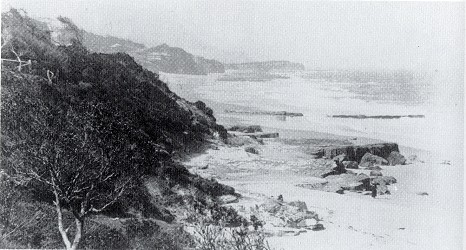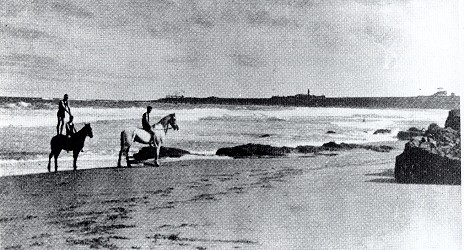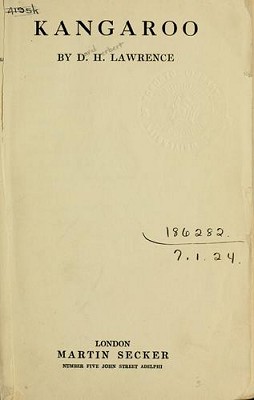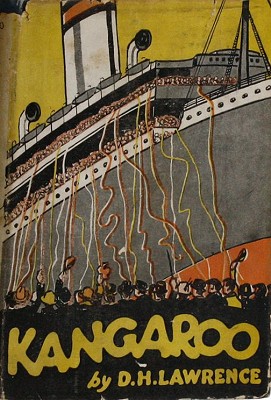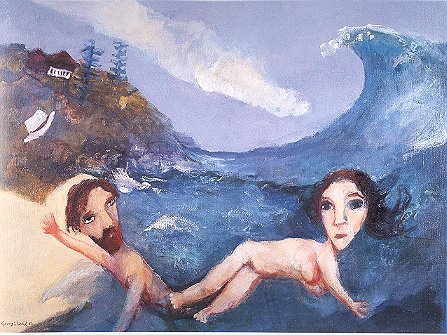
Garry
Shead:
The
Wave (1992)
Also see:
Appendix : the
wave in art
|
Shead, Garry (1942- ) :
The
Wave (1992)
Oil
on canvas board, 91 x121 cm
Private
collection.
From The
D.H. Lawrence Paintings, a series of
works based on D.H. Lawrence's Australian novel Kangaroo
(1923) and his time writing the novel at
Thirroul, NSW.
Lawrence,
his wife Frieda, the cottage Wyewurk, the
Norfolk pines and the rugged
coastline feature in most of the series.
One of the other thematic symbols of the series, a
large kangaroo, is absent from this work.
The
Lawrence works were initially encouraged by
Shead's contemporary, Brett Whitely, and in 1973
they produced a diptych Portrait of D.H.
Lawrence, see Grishin, page 51.
Brett Whitley (see above) committed suicide at
Thirroul in 1992.
The
wave image is reminiscent of Hokusai's Under
the Wave (1825).
Grishin, Sasha : Gary Shead and
the Erotic Muse
Fine
Art Publishing, St Leonards, Sydney. 2001.
|


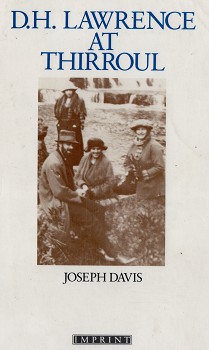
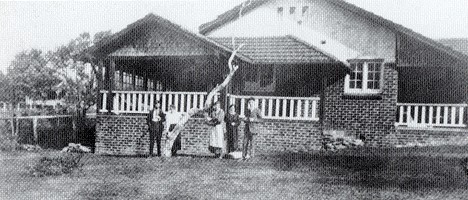 Lawrences and friends,
Wywurk, 1922.
(page 150)
Lawrences and friends,
Wywurk, 1922.
(page 150)